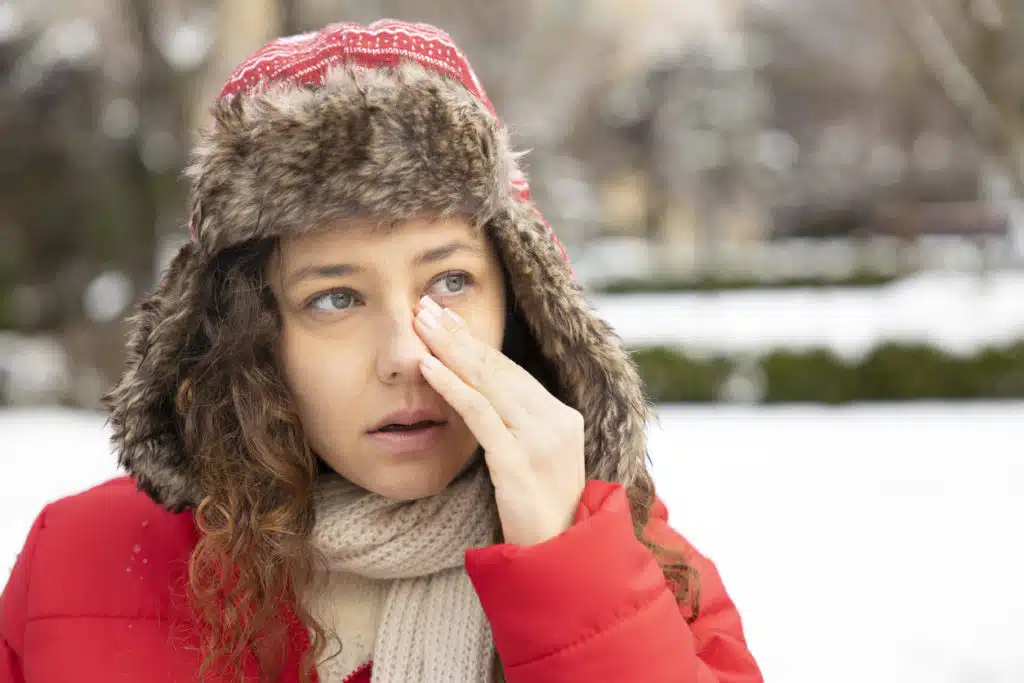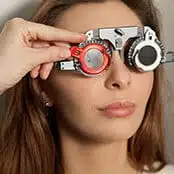
Your eyes are a highly sensitive organ and are particularly susceptible to changes in temperature, humidity, and other environmental factors. While your body is usually good at adapting to the weather and climate, it’s still a good idea to take a few extra precautions. Winter poses a set of unique challenges for your eyes, so here are four eye care tips from the best eye doctor in Washington.
Keep Your Eyes Moist
The extreme cold in winter can make your eyes dry. The cold decreases humidity, reducing the moisture in the air around you. Dry eyes are uncomfortable at best. At worst, they could leave your eyes vulnerable to infections and bacteria because their fluid helps flush foreign substances from your eyes.
Here are some tips on preventing dry eyes:
- Avoid windy places
- Use a humidifier while indoors
- If you must go outside, wear wraparound sunglasses or goggles
- Take frequent eye breaks if you work at a computer
- Use eye drops regularly
Following these tips can help keep your eyes moist and prevent dry eyes during winter. It can also help safeguard your long-term eye health. However, if you’ve already got dry eyes, it’s best to consult an eye doctor on what to do and how to prevent it in the future.
Wear Appropriate Gear
The low temperature of the winter season poses significant and different challenges for the human body — including your eyes. It’s best to wear appropriate gear to help protect your eyes.
Proper equipment can be the difference between getting an eye injury or condition and not having one. For example, wraparound sunglasses and goggles help protect your eyes from dry wind and air. Many people also participate in winter sports. Most eyewear for these activities has eye shields to deflect incoming snow or debris.
Winter sun also tends to be very harsh, so tinted eyewear helps block harmful UV rays from entering your eyes. Direct exposure to UV rays can damage your corneas and cause cataracts or macular degeneration. These conditions can damage your vision.
One condition to watch out for in winter is acute snow blindness. This condition is also called corneal sunburn or photokeratitis and is the result of excessive exposure to UV rays. UV rays come from the sun, but they can also reflect into your eyes from the snow. Snow blindness can develop extremely quickly — even in under an hour.
UV light is divided into three types: UV-A, UV-B, and UV-C. The Earth’s atmosphere blocks most if not all UV-C rays, but UV-A and UV-B still reach the surface. Both are harmful to your eyes.
Here are some factors to consider in choosing the correct eyewear:
Material
If you participate in winter sports, try to find eye protection made from sturdy polycarbonate plastics. Lower-quality materials and glass may break, causing eye injury.
UV protection
To protect your eyes, it’s best to use sunglasses or goggles that offer 100% UV protection. 100% UV protection indicates that it blocks all UV-A and UV-B rays approaching your eyes.
Shape
Your eyewear should cover as much of your eyes as possible. There’s no point in having 100% UV protection lenses if they don’t shield your eyes completely. It’s best to look for wraparound pieces or goggles that cover your eyes from all angles.
Polarization and Lens Color
Polarized lenses can help reduce glare, decreasing eye discomfort. They can also help you see in bright sunlight. Darker lenses also cut harsh light.
Fit
Look for eyewear that fits snugly but not too tightly. Your eye protection should stay on your head despite any physical activity, but not pressure your head.
Avoid Wearing Contact Lenses
The winter season also makes wearing contact lenses difficult, uncomfortable, and possibly harmful, too. The low humidity dries out your eyes, causing friction between your eyes and the contact lens. If this happens, you could experience blurred vision and pain.
It’s typically best to avoid wearing eye contact lenses during the winter season. If you must wear contacts, you must keep your eyes well-moisturized and protected.
Best Eye Doctor In Washington, MO
Winter poses unique challenges for your eyes — decreased humidity, harmful light, and more. It’s best to keep your eyes protected, moisturized, and safe, both to prevent discomfort and avoid possible injury.
To assure you and your family that your eyes will be protected in the winter, have your eyes checked by the best eye doctors in Washington. Advanced Sight Center has a team of board-certified ophthalmologists & optometrists ready to cater to you and your eyes’ needs.
To schedule an eye appointment, call our clinic today at (636) 239-1650 for more inquiries. You can also use our online appointment request form to reserve a time for your appointment. We will be sure to respond to your request within 48 hours. Take care of your eyes with us. We look forward to serving you!



